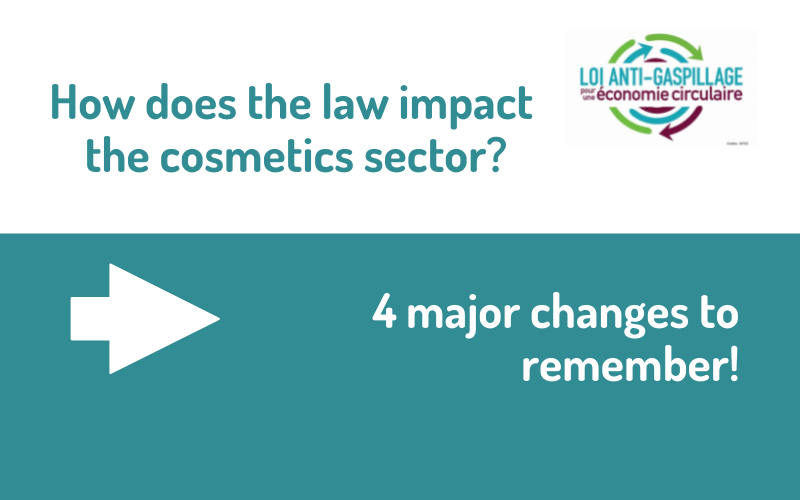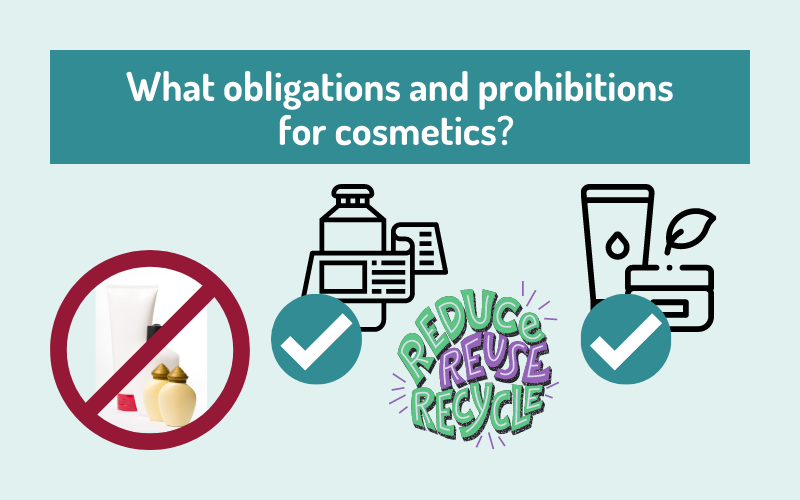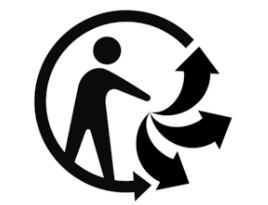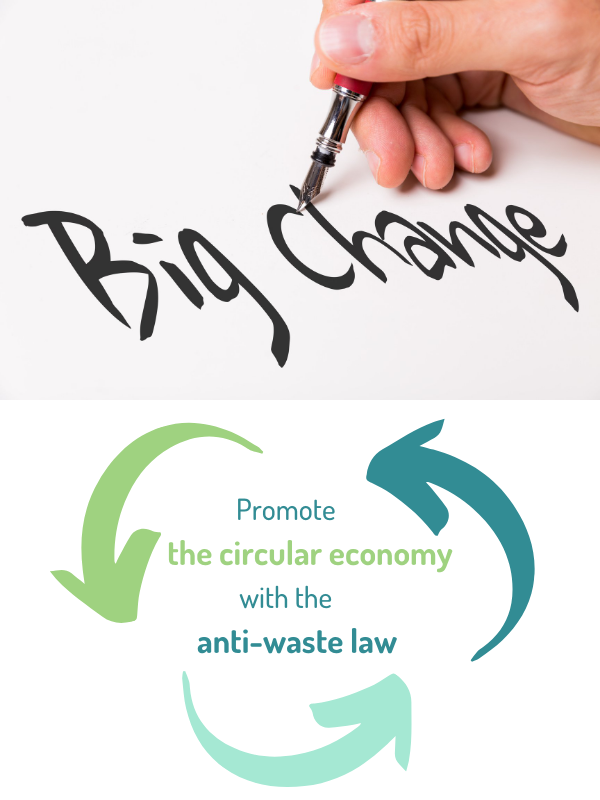AGEC Law: what does it say?
Adopted on February 10, 2020 by the French government, the AGEC law n°2020-105 is the circular economy and the fight against waste law.
The goal of the anti-waste law is to provide “answers to the expectations of our fellow citizens in terms of ecology through measures of daily life, thanks to a concrete ecology of preserving resources, health and purchasing power, while allowing an economic and industrial development on the territories “.
The major strategy of this law is the reduction and management of waste for a circular economy, it is aimed at all sectors of activity including manufacturers and producers in the industrial sector.
It is composed of more than a hundred articles of obligations and prohibitions to be implemented by 2040, but also provides support and incentives for the responsibility of businesses and consumers.
The anti-waste law focuses on five major issues:
- Stop using disposable plastic
- Better informed the consumer
- Fighting against waste and for solidarity reuse
- Act against programmed obsolescence
- Better production
To achieve this, the law sets out a precise timetable, including targets for waste reduction, reuse and recycling of products, including plastic packaging.

How does the AGEC law impact the cosmetic industry?
Despite the daily efforts of many beauty professionals to reduce the environmental impact of their products, the cosmetics sector is directly affected by the implementation of this law. Because it affects both the formula and the beauty product in its overall state. This law is in addition to the regulatory obligations specific to cosmetic products.
The 4 big changes to remember for the cosmetics field:
- Only reusable cosmetic packaging, entirely made from recycled materials with zero plastic or single-use. Clémence THORY, marketing manager at ALPOL Cosmétique, emphasizes the enormous challenge “especially for samples or cures in the form of ampoules which will have to find a substitute for this type of packaging to satisfy the anti-waste law”
- The mention “biodegradable” (or equivalent) is now prohibited on cosmetic products and packaging. Because it creates confusion among consumers about the recyclability of waste and the fight against plastic pollution.
- The obligation of a single label for all in order to standardize sorting and the ways of proceeding: triman logo for example.
- Regarding the formula, cosmetic brands will initially have to inform consumers about the possible presence of endocrine disruptors in their beauty products. These informations must be in full public access and free of charge on the internet. In a second phase, they will have to stop selling beauty products containing “any substance in the state of microplastic”, and this from January 1, 2026. Detailed informations on these requirements can be found on the website of the National Assembly (France).

What obligations and prohibitions of the AGEC law for cosmetics in 2022?
The mandatory measures related to the implementation of the anti-waste law for a circular economy can be complex for cosmetics companies.
It is therefore essential to be accompanied by professionals in cosmetic regulation for the proper implementation of the requirements of the AGEC law.
Some cosmetic manufacturers are able to assist customers in ensuring the application and maintenance of regulatory compliance of cosmetic formulas and products.
ALPOL Cosmétique, and particularly the Regulatory Department teams, help anticipate these new requirements, providing analysis and expertise on each cosmetic product development project.
VIDEO TO DISCOVER – THE STRENGTHS OF THE REGULATORY DEPARTMENT AT ALPOL COSMETIQUE
The teams of the cosmetics manufacturer have listed below the main mandatory measures applicable on January 1, 2022.
Below are the 4 themes :
1.Limit waste production by moving away from disposable plastic
The mentions and processes of uses on the cosmetic products of single use and their cosmetic packagings are modified:
- Certain compulsory information on packaging (incorporation of recycled materials, recyclability, possibilities for reuse, presence of hazardous materials, etc.) is to be made available to the end consumer by electronic means, depending on turnover and the number of units sold in France.
- Compostable plastic products and packaging, whether for home or industrial composting, must be marked “Do not discard in nature”.
- The terms “biodegradable”, “environmentally friendly” or any other equivalent term may no longer be used – (Art. 13 AGEC Law – Decree in preparation).
- The use of mineral oils on packaging is prohibited – (Art. 112 AGEC Law)
2. Better informing consumers
The information towards the consumer of the product in its entirety is at the heart of the device of the anti-waste law for a circular economy. With this in mind, mandatory display measures on cosmetic products are required:
- Endocrine Disruptors (EDs):
- electronic display of the presence of known, suspected or alleged EDs- (Art. 13 AGEC Law Decree based on ANSES list in preparation).
- Single sorting logo: affixing of the Triman picto and harmonized sorting information (Art.17 AGEC law: application decree in preparation + New sorting instructions).

3. Fighting against waste and for solidarity reuse
The AGEC law intends to limit waste production to preserve natural resources, and absolutely prohibits the disposal of unsold non-food items. For companies in the cosmetics industry, this means that they must now:
- donate (for example to associations) or recycle their unsold daily hygiene products. They are required to foresee an alternative use or a donation of these unsold beauty products to optimize their waste management, and no longer destroy them as hitherto authorized – (Art.35 AGEC Law Decree in preparation).
However, the AGEC law specifies that there will be exceptions and mentions that “only certain products for which recycling would lead to a negative environmental impact or if it is prohibited (because it presents a risk to the environment or to human health) or for which there is no technical solution of reuse, reutilization or recycling will be able to benefit from an exception.”
Nevertheless, “in the medium and long term, the entire cosmetics industry will have to rethink its inventory management in order to reduce overproduction”, and its waste.
4. Better production
- Encourage waste reduction through the production of more environmentally friendly products with a bonus-malus system. Those who design their products in a more ecological way will benefit from a bonus on the contribution they pay to their eco-organization for the management and treatment of the end of life of their products. On the other hand, manufacturers who are not in an ecodesign process will see this contribution increase with a malus.
Do you have questions about the new mandatory measures in the AGEC Act? Contact our team for more information.





